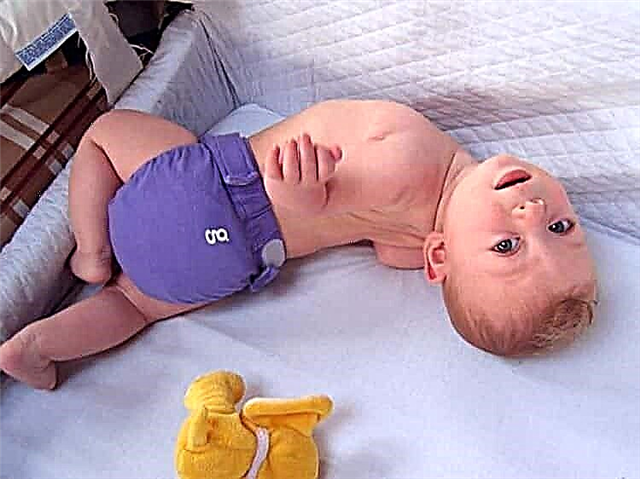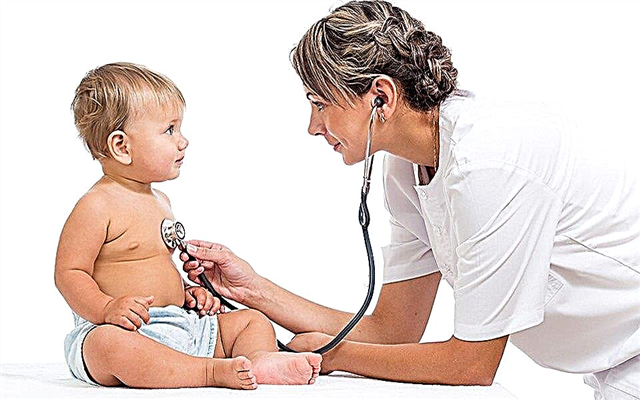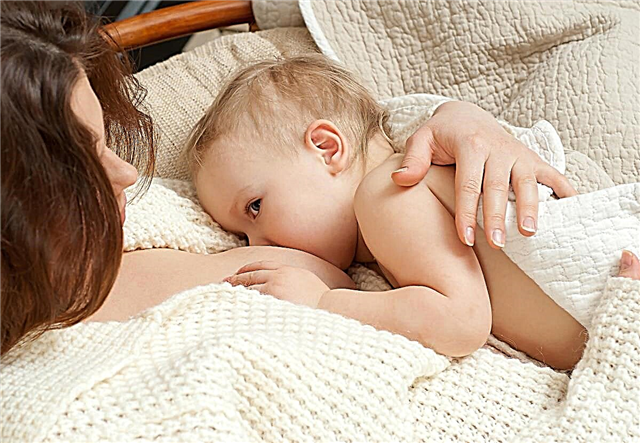During the growth and development of the organism, various changes occur. Without symptoms of the disease, you can face a problem - the baby has a temperature of 37. Parents should be prepared in advance for such a situation.

Well-being in a child is an indicator of health
Temperature up to a year without symptoms
It is believed that the normal human body temperature is 36.6 degrees. In newborns, it can range from 36.0 to 37.2 without symptomatic manifestations of diseases. If the baby has a temperature of 37, then this is not a reason for worry. It is recommended to assess his general condition. Such cases occur because the body needs to adapt to new external conditions. Doctors record short-term temperature drops in children 0-4 months. The reason is that the functioning of heat exchange does not improve immediately after birth.
The norm can even be violated within one day. Increases and decreases in performance without symptoms and changes in mood can be for various reasons:
- external stimuli (loud conversations, long games, bright lights, extraneous noises);
- excessive activity (mobility, performing various actions and long games);
- increased emotionality;
- too warm clothes (2-3 extra layers).
All this leads to changes in the indicators on the thermometer. In 90% of cases, overheating is negatively affected. The first thing to do is remove warm clothing or ventilate the area.
Interesting fact. After birth and in the first 2-3 days, the temperature can rise to 38.0, there are no symptoms of the disease.

You need to measure the readings correctly
Important! Heat exchange mechanisms can be formed up to 6 months from the date of birth.
Causes of low-grade fever in children without symptoms
The normal indicator can change under the influence of various reasons. They are divided into natural reactions from the body and negative factors - diseases caused by the influence of bacteria and viruses. If the temperature of 37 degrees in a newborn baby lasts more than 2 days, it is recommended to consult a doctor for advice.
The body's natural reactions to external stimuli
This group includes:
- vaccination - adverse reactions occur in most cases in the form of a short-term increase in body temperature, occur against the background of the introduction of an irritant into the body;
- increased indicators of air temperature outdoors or indoors;
- Teething or gum swelling (preparation)
- long sleep - 3-4 hours at a time or more than 10 hours at night;
- overheat;
- hypothermia;
- overexcitation - positive emotions from long games are the reason for a general increase in the indicators on the thermometer;
- various neurological disorders;
- an allergic reaction - the baby may react negatively to external irritants that are natural for adults (flowers, dust in the room or food cause problems).
Immunity weakened due to age-related characteristics causes similar manifestations. A prolonged cry can also cause a deviation from the norm. In some cases, the introduction of protein complementary foods is negatively reflected.

Wrapping your baby up isn't always good.
Diseases - causes of fever
There are a number of diseases that lead to an increase in temperature readings. Doctors distinguish the following:
- sore throats (of different origins);
- diphtheria;
- whooping cough;
- tuberculosis;
- orvi;
- orz (there is a runny nose, cough, there is snot in the nose);
- dysbiosis;
- tonsillitis;
- measles;
- rubella;
- chickenpox;
- sinusitis;
- sinusitis;
- otitis;
- eruption of molars;
- glomerulonephritis;
- pyelonephritis;
- herpes infection;
- hepatitis of various forms;
- helminthiasis (the negative effect of parasites in the body);
- anemia;
- VSD;
- autoimmune diseases;
- problems with the endocrine system.
It is believed that babies who are breastfed have stronger immunity. They can resist diseases and carry them more easily. In order to exclude the development of the disease and affect it in the early stages, a timely visit to a doctor is required.

Diseases are different
Attention! The upper limit of normal temperature in the first year of life is 37.7 degrees.
What to do with subfebrile condition
If the baby does not cry, his behavior and appetite do not change, then in most cases one should not worry. Against the background of overheating in a newborn, a temperature of 37 appears almost always. That is why you need to remove excess clothing from your child. The main cause of the problem is the formation of body functions. If the first measurement indicator is exceeded, and the second is normal, then an additional one should be made. This will calculate the baby's true temperature. It is believed that a temperature of 37 2 degrees in infants at 2 months and older is associated with the appearance of milk teeth.
Temperature 37 in a baby 1 month
In 90% of cases, a one-month-old baby cannot independently regulate body temperature. His body is not yet ready to perform such functions. The condition is influenced by:
- schedule;
- duration of games;
- general health indicators.
The following should be done: airing the room and regulating nutrition (if the child is breastfed, then the mother will need to pay attention to the menu).
Temperature 37 in a child 2 months
Indicators increase in the following cases:
- overheating of the body;
- the eruption of the first teeth;
- reaction to vaccination (vaccination is the main cause of temporary deterioration in well-being);
- various childhood diseases;
- exposure to viruses and infections;
- nervous overstrain (emotions or pathologies of the nervous system).
If there are no accompanying symptoms, a temperature of 37 ° C in a 2 month old baby should not cause concern. The main condition is that the indicators quickly normalize.
Temperature 37 in a child 3 months
The reasons are:
- booster vaccination;
- colds;
- overheating of the body (this is influenced by the microclimate in the room or apartment, the number of layers of clothing and material, the child can sweat during outdoor or long games);
- teething.
Also, temperature changes are influenced by age-related activity, the introduction of new products into the diet (the first complementary foods in babies who are artificially fed).

Optimal microclimate values will eliminate the problem
Preventive measures
If a temperature of 37 1 degrees appears in a child 1 month and older, then preventive measures must be taken so that a repetition does not occur. You will need to do the following:
- ventilate the room every evening before going to bed;
- walk for one or two hours (the body adjusts the functions of thermoregulation);
- observe the sleep and wakefulness regime according to age (the doctor will give the necessary recommendations if necessary)
- carefully carry out hardening procedures (under the supervision of a pediatrician);
- avoid stressful situations that negatively affect the child;
- promptly start treatment after contact with viruses or infections (with the appearance of the first symptoms).
It is recommended to provide a favorable microclimate and psychological environment in the house.
Important! If problems have arisen after vaccination, then booster vaccination can be done with a weakened culture.
When the temperature is 37 more than a week
It is recommended to pay attention to the baby's condition if the indicators are kept above the norm for the second day. You need to seek help from specialists when another symptom appears along with an increase in temperature indicators. In this case, you need to do as the attending physician advises. It is impossible to use traditional medicine methods, since the child's condition can only worsen.
It is recommended to take into account the present symptoms:
- a cough may indicate the development of bronchitis, pneumonia, allergies or acute respiratory infections;
- a runny nose indicates the possibility of an allergic reaction, a cold;
- vomiting - indigestion, pathologies associated with the central nervous system;
- abdominal pain - colic, childhood diseases, tonsillitis;
- violation of the stool - the negative effect of helminths, intestinal problems.
Changes in mood and lethargy indicate that there is the onset of an infectious infection, an inflammatory process. Without an appointment, antibiotics cannot be used in the treatment process.
Often, the baby's temperature rises to 37 and above. Parents need to know why change is happening and how to act in a given situation. You shouldn't panic right away, but you shouldn't hesitate either.
Among the causes of the problem are the influence of external factors and the effects of viruses, infections, bacteria or helminths. Elevated rates without additional symptoms are normal in the first year of life.
It is necessary to monitor the general condition of the baby: daily routine, proper nutrition (you should not overfeed, introduce complementary foods according to age, do not rush with new components in food, since the body may not be able to cope, since not all enzymes are produced in sufficient quantities). It is not difficult to follow the recommendations and carry out prevention. As a result, the baby and parents will be in a harmonious environment, which will positively affect the development of the child.



